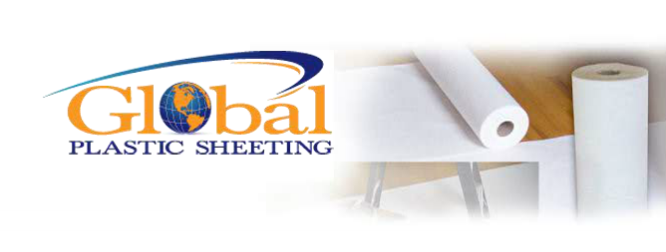When choosing a containment liner for landfills, ponds, mining, and industrial applications, two of the most common options are HDPE (High-Density Polyethylene) and PVC (Polyvinyl Chloride). Both materials offer waterproofing and chemical resistance, but they differ in durability, flexibility, and performance in extreme conditions.
In this guide, we’ll compare HDPE vs. PVC liners and explore whether HDPE liners can withstand freezing temperatures.
HDPE vs. PVC Liners: Key Differences
Material Composition & Structure
HDPE and PVC liners are both synthetic geomembranes, but their chemical composition impacts their performance.
- HDPE (High-Density Polyethylene): A rigid, durable material known for its high tensile strength and chemical resistance.
- PVC (Polyvinyl Chloride): A flexible material that conforms easily to uneven surfaces but requires plasticizers to maintain flexibility.
The choice between these liners depends on factors like durability, cost, installation, and environmental exposure.
Durability & Longevity
HDPE Liners: Highly Durable & Long-Lasting
✔ Resistant to UV exposure – Doesn’t degrade under prolonged sunlight.
✔ Highly puncture-resistant – Suitable for rough terrain and heavy loads.
✔ Chemical and corrosion-resistant – Ideal for hazardous waste containment.
✔ Long lifespan (30-50 years) – Minimal maintenance required.
PVC Liners: Softer But Less Durable
✔ More flexible – Easier to install in tight or irregular spaces.
✔ Lighter weight – Easier to handle during installation.
❌ Prone to UV degradation – Requires a protective cover if exposed.
❌ Weaker puncture resistance – Can tear under heavy loads or rough surfaces.
❌ Shorter lifespan (15-25 years) – More frequent replacements needed.
🏆 Winner: HDPE – Offers better long-term durability and lower maintenance costs.
Installation & Seaming
HDPE Liners: Requires Welding for Secure Seams
✔ Seams are heat-welded for airtight and watertight bonds.
✔ Requires specialized equipment but creates a strong, leak-proof barrier.
❌ Less flexible – More difficult to install on complex or uneven terrain.
PVC Liners: Easier to Install But Weaker Seams
✔ Factory-prepared seaming for simple installation.
✔ More flexible, making it easier to work with in tight spaces.
❌ Uses chemical adhesives that may weaken over time.
❌ More vulnerable to leaks and seam failures.
🏆 Winner: PVC – Easier installation, but HDPE provides better long-term seam integrity.
Chemical & Environmental Resistance
HDPE Liners: Superior Chemical Protection
✔ Resistant to acids, chemicals, and hydrocarbons.
✔ Commonly used in landfills, mining, and hazardous waste containment.
✔ Withstands microbial and fungal growth.
PVC Liners: Moderate Chemical Resistance
✔ Resists some chemicals but can break down over time.
✔ Vulnerable to solvent-based contaminants.
✔ Plasticizers used in PVC liners can leach out, reducing lifespan.
🏆 Winner: HDPE – Provides stronger chemical and environmental resistance.
Cost & Budget Considerations
HDPE Liners: Higher Upfront Cost, Lower Long-Term Costs
✔ Higher initial cost but lasts longer.
✔ Requires less maintenance and fewer replacements.
PVC Liners: Lower Initial Cost, Higher Maintenance Costs
✔ Cheaper upfront but requires more frequent repairs and replacements.
✔ Long-term costs add up due to UV degradation and seam failures.
🏆 Winner: HDPE – More cost-effective in the long run.
Can HDPE Liners Withstand Freezing Temperatures?
Yes! HDPE is Designed for Cold Weather
HDPE liners are engineered to perform in extreme temperatures, including freezing conditions. Here’s why:
✔ Maintains flexibility in cold weather – Won’t crack or become brittle.
✔ Low-temperature resistance – Can withstand temperatures as low as -50°F (-45°C).
✔ Minimal expansion & contraction – Less risk of warping in fluctuating temperatures.
✔ Retains strength even when frozen – Suitable for Arctic and cold-climate containment.
PVC Liners in Freezing Conditions
❌ More prone to cracking and shrinkage in cold weather.
❌ Plasticizers can harden in freezing temperatures, reducing flexibility.
❌ May lose elasticity and require additional anchoring.
If you need a liner for cold climates, frozen ground, or extreme weather conditions, HDPE is the superior choice.
Which Liner Should You Choose?
| Feature | HDPE Liner | PVC Liner |
|---|---|---|
| Durability | ✅ Long-lasting (30-50 years) | ❌ Shorter lifespan (15-25 years) |
| UV & Weather Resistance | ✅ Excellent, no cover needed | ❌ Requires cover to prevent degradation |
| Puncture Resistance | ✅ High | ❌ Moderate |
| Chemical Resistance | ✅ Superior | ❌ Less resistant |
| Installation Ease | ❌ More difficult | ✅ Easier to install |
| Seaming Strength | ✅ Heat-welded, leak-proof | ❌ Uses adhesives, weaker seams |
| Cost | ❌ Higher upfront | ✅ Lower upfront, but higher maintenance |
| Cold Weather Resistance | ✅ Withstands freezing | ❌ Can crack and lose flexibility |
When to Choose HDPE Liners
✔ Long-term containment solutions (30+ years)
✔ Heavy-duty industrial applications
✔ Cold-weather or extreme climate projects
✔ Hazardous waste and chemical containment
When to Choose PVC Liners
✔ Short-term projects (under 20 years)
✔ Flexible liner needs for small or uneven spaces
✔ Lower-budget containment solutions
If you need maximum durability, chemical resistance, and cold-weather performance, HDPE is the best choice.
Final Thoughts: HDPE vs. PVC for Containment
✔ HDPE liners are stronger, last longer, and provide better chemical resistance.
✔ PVC liners are easier to install but degrade faster and have weaker seams.
✔ HDPE withstands freezing temperatures, while PVC can crack in the cold.
If you’re investing in containment solutions, HDPE offers superior long-term performance and reliability.
Get Expert Advice on HDPE Liners for Your Project!
Looking for high-quality HDPE liners for containment, industrial use, or cold-weather applications? We provide:
✅ Premium-grade HDPE liners in multiple thicknesses
✅ Expert consultation to help you choose the right liner
✅ Bulk pricing and fast shipping for large-scale projects
📞 Contact us today to find the perfect containment solution for your needs! 🚀


